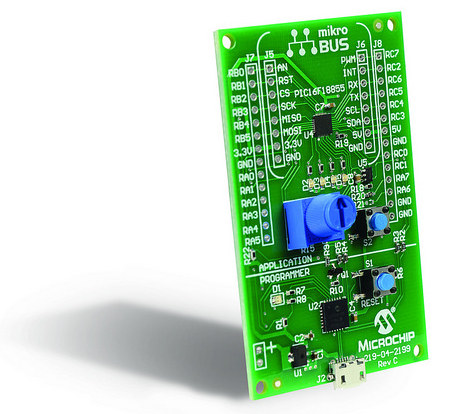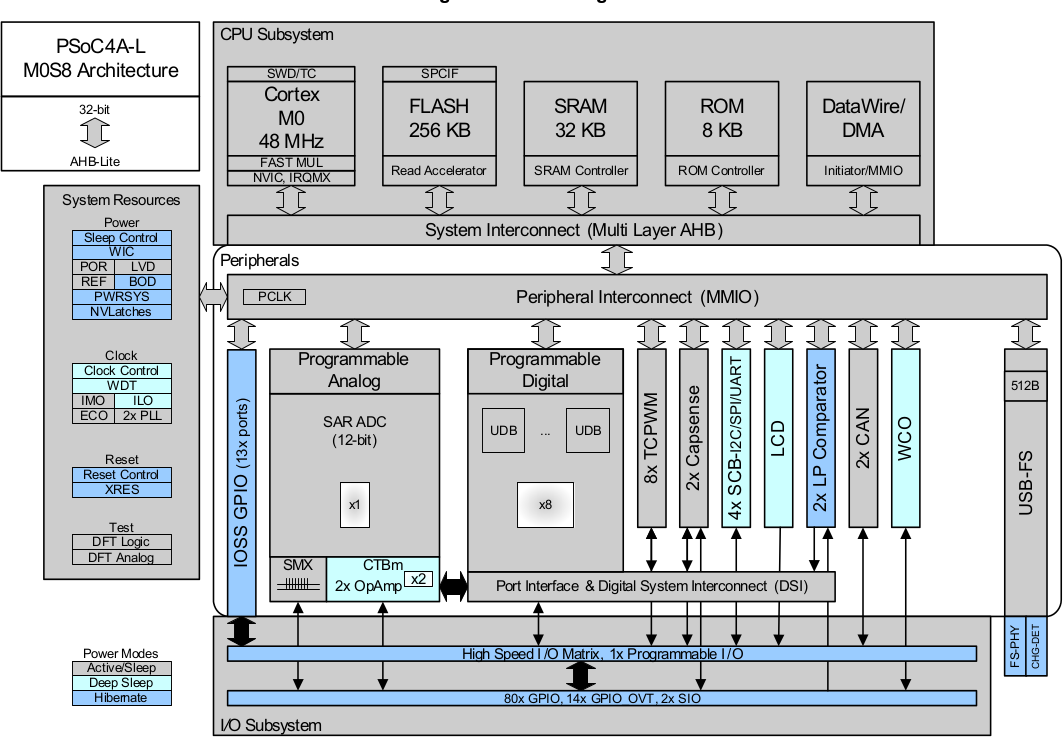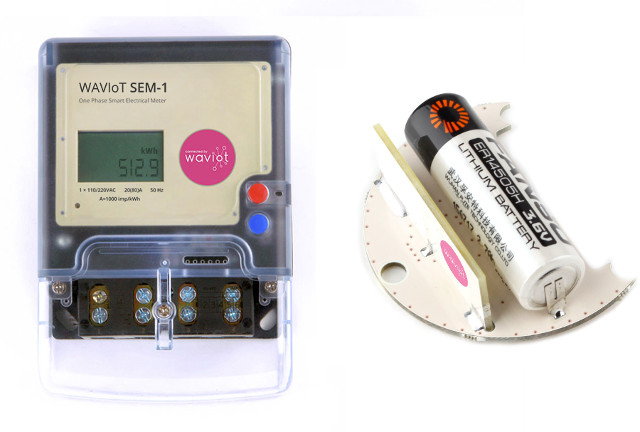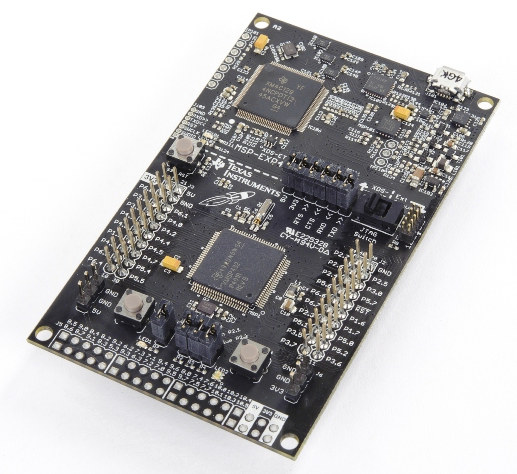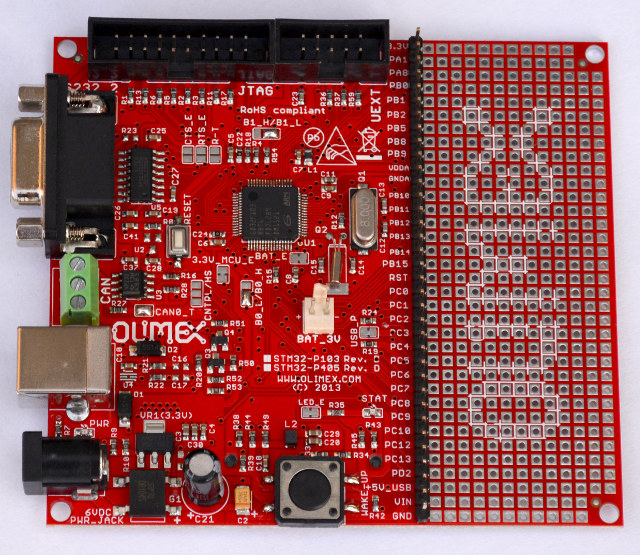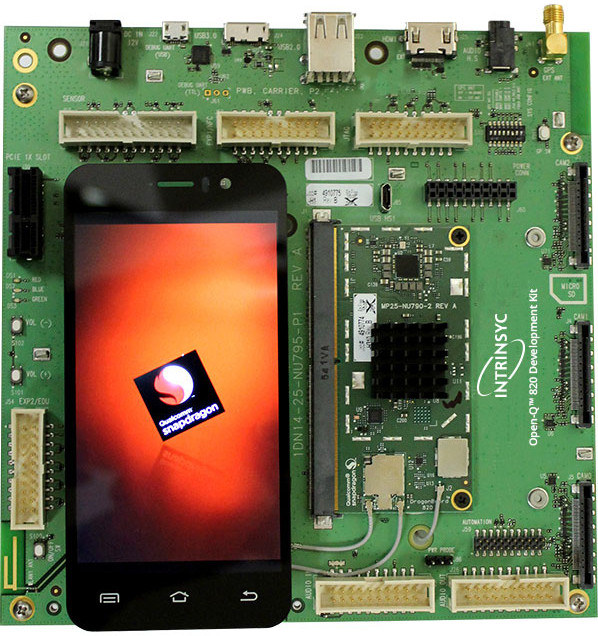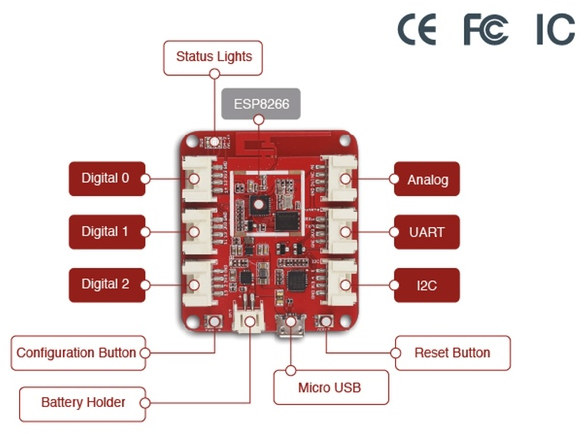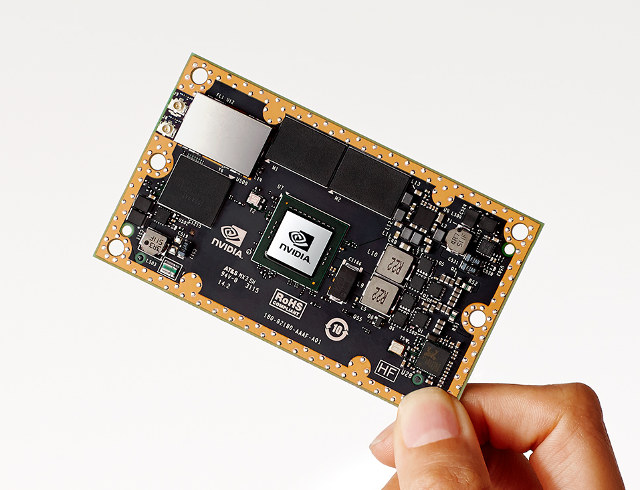Microchip has just launched MPLAB Xpress online IDE with some of the most used features of the company’s MPLAB X IDE, as well as a free – in limited quantities – MPLAB Xpress evaluation board based on a PIC16 micro-controller. Let’s get through the development board specifications first: MCU – Microchip PIC16F18855 MCU with 14KB flash, 1KB SRAM, 256 bytes EEPROM USB – micro USB port for power and programming Expansion Headers Unpopulated mikroBUS header supporting one of 180 Click boards Unpopulated 2x 14-pin header with GPIOs, I2C, SPI, UART, ADC, etc… Misc – Reset button, user button, potentiometer Dimensions – N/A Playing with hardware is always more fun, but if you just want to evaluation the online IDE, you don’t even need the board. Visit MPLAB Xpress Code Examples page, load one of the example, possibly log-in if you want to save changes to the 10GB free online storage […]
Cypress Introduces PSoC 4 L-Series ARM Cortex-M0 MCU and Development Kit
Cypress Semiconductor has recently unveiled PSoC 4 L-Series micro-controller family based on ARM Cortex M0 core with more programmable analog and digital blocks, expanded memory, new peripherals and higher number of I/Os, as well as the corresponding Arduino compatible CY8CKIT-046 PSoC 4 L-Series Pioneer Kit to evaluate their latest solution. Key features of PSoC 4 L-Series MCU ARM Cortex-M0 CPU @ 48-MHz with DMA controller, up to 256KB flash, up to 32KB SRAM and up to 98 GPIOs CapSense with SmartSense auto-tunning – 2x Cypress Capacitive Sigma-Delta (CSD) blocks Programmable analog 4x configurable opamps 4x current DACs (IDACs) 2x low-power comparators (CMP) One 12-bit, 1-Msps SAR ADC Programmable digital 8x Universal Digital Blocks (UDBs) 8x configurable 16-bit TCPWM 4x independent serial communication blocks (SCBs) Full-Speed USB 2.0 controller 2x CAN Controllers Segment LCD Drive support up to a maximum of 64 output (commons or segments) Power 1.71 to 5.5 V […]
WAVIoT LPWAN Technology Powers Low Cost Smart Water and Electricity Meters
With the rise of IoT and M2M applications, more and more Low Power Wide Area Network (LPWAN) standards have been launched or being worked on, such as Sigfox, LoRa, 802.11ah “Hallow”, Weightless, etc… with all promising long range, low power consumption, and support for a high number of nodes. WAVIoT, a US startup founded in 2011, has decided to create its own solution called WAVIoT Nb-Fi (Narrowband Fidelity) that works in ISM bands, offers up to 50km line-of-sight range, supports up to 2 million nodes by gateway, lasts over 20 years on a small battery, and with WAVIoT said to cost as low as $2 per node. The technology is already available in smart electricity and water meters, and modules as shown in the picture below. Here are some of WAVIoT Nb-Fi technical specifications: DBPSK on physical layer of signal transmission; End-nodes transmit radio signal in 10-500 kHz bandwidth Minimum […]
Texas Instruments MSP432 LaunchPad Development Board Sells for $4.32 (Promo)
Texas Instruments has started the year by offering a deal on their 32-bit MSP432 LaunchPad Development Kit, dropping the cost from $12.99 to $4.32 for a limited time with coupon code 432@432. MSP432 Launchpad’s key features: MCU – Texas Instruments MSP432P401R ARM Cortex M4F MCU @ 48 MHz with FPU and DSP, 256KB flash, 64KB RAM Expansion – 40 pin BoosterPack Connector, and support for 20-pin BoosterPacks Misc – 2 buttons and 2 LEDs for user interaction Debugging – Back-channel UART via USB to PC, Onboard XDS-110ET emulator featuring EnergyTrace+ Technology Power – Micro USB connector The kit includes the board, micro USB cable and a quick start guide. There’s plenty of technical documentation for the board, although for some unknown reasons, I can’t download any PDF documents from TI website tonight. The coupon is still working, but free shipping on TI eStore seems to be a thing of the […]
GigaDevice GD32 is a Faster, Software and Pin-to-pin STM32 Compatible Cortex M3 MCU
Las month, Olimex discovered a Chinese company called GigaDevice has made an STM32 clone called GD32 and compatible with STM32F103, but with higher core frequency (108MHz). Olimex has now posted an update after receiving a letter from GigaDevice, and trying GD32F103RBT6 MCU on their own STM32F103 boards. The company explained that GD32 was their own implementation, and claimed rights on GD32 trademarks, while Olimex discovered than GD32 was working just fine on their board having passed “all functional tests without any modifications”, and with all the same development tools and software code running fine. GD32F103xx datasheet (PDF / English version) can be downloaded to find a few more details: The GD32F103xx device incorporates the ARM Cortex-M3 32-bit processor core operating at 108 MHz frequency with Flash accesses zero wait states to obtain maximum efficiency. It provides up to 3 MB on-chip Flash memory and up to 96 KB SRAM memory. […]
Intrinsyc Introduces Qualcomm Snapdragon 820 Cortex-A72-Class Development Board, SoM and MDPs
While there’s already an healthy choice of ARMv8 development board such as LeMaker Hikey, or Qualcomm DragonBoard 410c, all those platforms are based on the lower end Cortex A53 64-bit ARM core, and ARM Cortex A57, let alone Cortex A72, boards are much more difficult to find, as they are much pricier and/or have limited availability. Intrinsyc may have released the first (somewhat) affordable and accessible Cortex-A72-class development board with Open-Q 820 development kit comprised of a SoM and a baseboard, as well as smartphone and tablet mobile development platforms (MDPs) based on Qualcomm Snapdragon 820 quad core Kryo processor. While Kryo is a custom ARMv8 designed by Qualcomm, and not exactly a Cortex A72 core, both have similar performance, as shown in Snapdragon 820 Antutu and Kirin 950 Antutu results. Open-Q 820 board specifications: SoC – Qualcomm Snapdragon 820 quad core Kryo cores with 2x cores @ up to […]
Wio Link is an ESP8266 Board Designed to Make IoT Projects Easier (Crowdfunding)
There are already plenty of board or modules based on Espressif ESP8266 WiFi SoC, but if you don’t like soldering, or would rather avoid breadboards and some cables for your or your kids’ projects, Wio Link may be interesting, as all you need to is to connect Grove modules required for your applications to get started, and Seeed Studio also took care of the low level software part and a drag-and-drop mobile app is provided, so software programming has been made easy too. Wio Link hardware specifications: SoC – Espressif ESP8266EX Tensila SoC Storage – 4MB flash Connectivity – 802.11b/g/n WiFi, with WEP/TKIP/AES encryption support Expansion – 6x Grove connectors: 3x digital, 1x analog, 1x UART and 1x I2C (3.3V I/Os) Power Supply 5V via micro USB port 3.4 ~ 4.2V via external battery Output DC Current – 1000mA MAX Charge Current: 500mA MAX Dimensions – 55mm*48mm Weight – 26g […]
Nvidia Tegra X1 Development Board is Finally Available… for $599
When Nvidia introduced Nvidia Tegra X1 octa processor with a 256-core Maxwell GPU at the very beginning of the year, I was expecting Jetson TX1 is follow suit in the next few months, but instead the company launched Nvidia Shield Android TV box based on the processor. The company has now launched Jetson TX1 module and development board. Let’s check the module first and its main specifications and features: SoC – Nvidia Tegra X1 octa core processor with 4x ARM Cortex A57 cores, 4x ARM Cortex A53 cores, and a 256-core Maxwell GPU System Memory – 4GB LPDDR4 (25.6 gigabits/second) Storage – 16GB eMMC Connectivity – 802.11ac 2×2 Bluetooth ready, Gigabit Ethernet Video – 4K video encode and decode Camera – Support for 1400 megapixels/second Dimensions – 50mm x 87mm The module support Linux4Tegra operating system based on Ubuntu. Libraries and drivers to leverage the Maxwell GPU include cuDNN CUDA-accelerated […]


